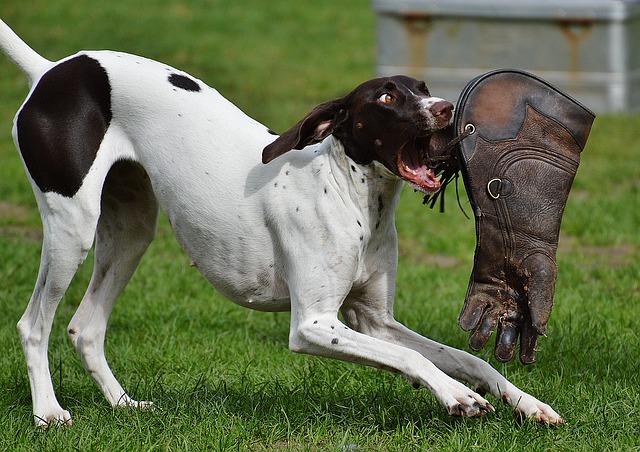We All Know What Happens When We Assume – Or Do We?
(c) 2017 Pamela Dennison
We’re always told “don’t assume” and for the most part, that is excellent advice. However, I’ve come to the conclusion that when it comes to dog training, “assuming” can be our friend.
I’ve had many clients come to me with out of control dogs – whether they are just untrained and pull on leash or jump, or anything else the owner finds annoying, or the dog has been inadvertently trained to do those things.
My standard “speech” has been: “Be proactive, rather than reactive, catch the dog being right,” “If the dog is being “bad,” the behavior has already happened – think spilt milk – it’s already spilled and nothing you do now will keep it from not spilling,” etc., etc.
Great advice if I do say so myself, and some of my clients understand it and some don’t. I’ve tried in many different ways to explain to these owners how to act differently so their dog will act differently. I’ve talked about timing, looking for patterns, times of day, reading the dog better and still, some people get it and others don’t.
So here’s another way to look at how to approach a behavior issue – any issue – be it jumping, barking, reactivity, aggression – you name it.
If you already know certain situations set your dog off to do behaviors you don’t want (people coming in the door, other dogs, strangers, etc.) don’t ignore it and then try to fix it – it’s too late at that point (see above spilt milk).
So my new “motto” is….
Assume your dog will always be “bad.”
So, what does this mean? It’s pretty simple. Just assume your dog will always be “bad.” If you assume your dog will always be bad, then guess what?
You will;
Be more prepared,
Plan better,
Use more appropriate management,
Have better judgment,
Develop faster reflexes,
Read your dog better,
Actually watch your dog,
Not put your dog in a situation where your dog will fail
When you assume your dog will always be “bad,” then I can pretty much guarantee that your dog will stop being “bad.”
Think about it…

